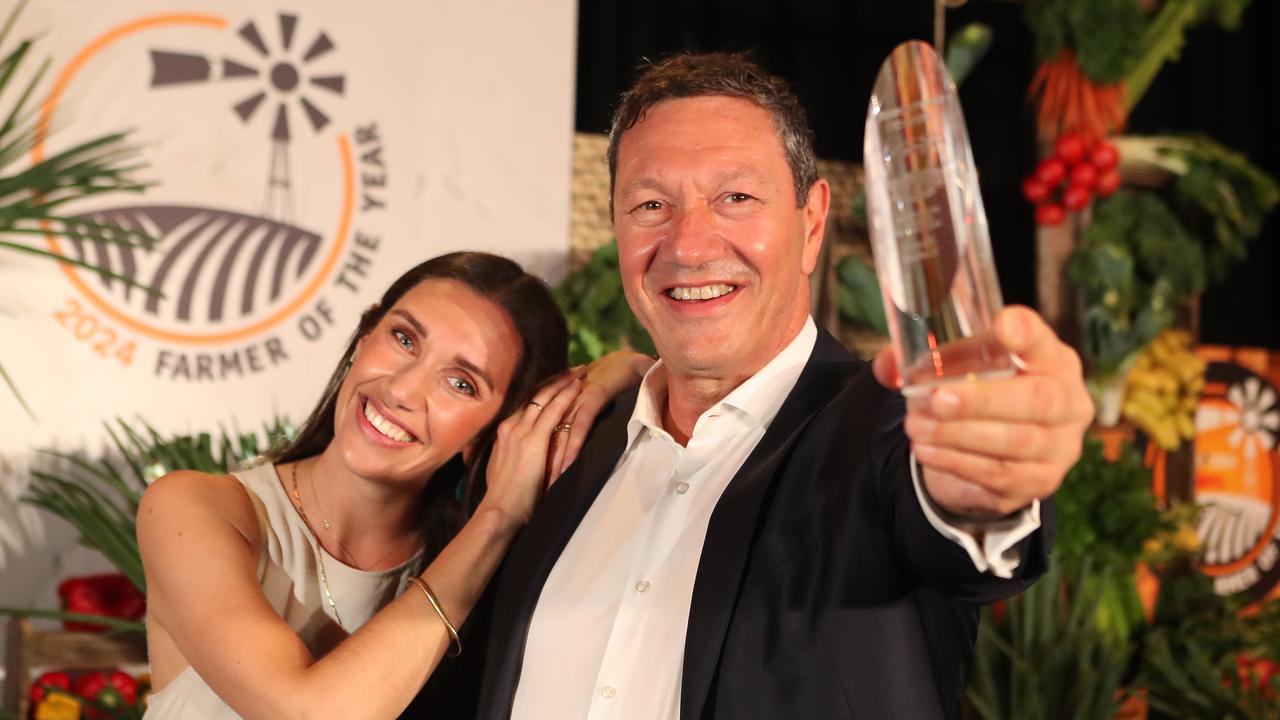The Weekly Times Coles 2022 Farmer of the Year Awards: Sheep finalists
Sheep farming is one of Australia’s oldest industries and one of ag’s most iconic — see how these family sheep farms have pulled ahead of the competition.
Meet the nation’s top sheep farmers in 2022, all named finalists in The Weekly Times Coles 2022 Farmer of the Year Awards for the Sheep category.
Stay tuned for the announcement of the six category award recipients and overall winner on Friday 24 February.
Meet the rest of the finalists here.
BRUCKNER FAMILY
GNADBRO PASTORAL COMPANY
COLLINGULLIE, NSW
In country best known for wool production, Heath Bruckner is fast making a name for himself at the tops of the chops.
Heath’s Collingullie-based family operation, Gnadbro Pastoral Company, spans a massive 20,000 hectares in the sheep breeding heartland of the NSW Riverina, and have made producing first-cross sheep an art form.
Once a side venture, its now morphed into a major enterprise with the addition of the property at Hay about 15 years ago.
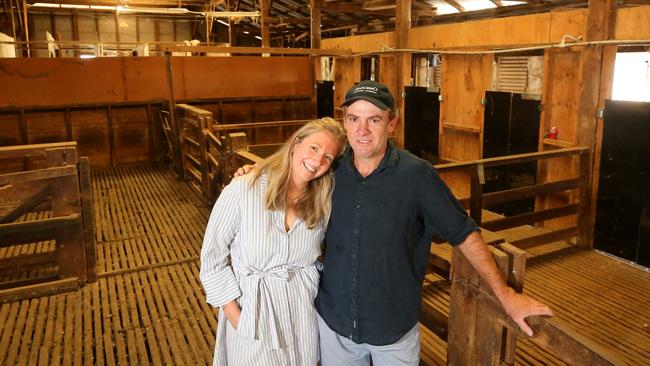
Today, Heath joins about 13,000-14,000 Merino ewes, selling heavy export wether lambs and ewes either as lambs or traditional 1½-year-olds.
What’s different now though are the premiums the Bruckners are achieving for their wethers, which were merely a by-product of the breeding program two decades ago.
It’s been a game changer, knowing there are three income streams – wool from the Merinos, prime lamb from the first-cross wethers and breeder values for the ewes – that give tenacity to the operation.
It’s not without its challenges – turning off 14,000-16,000 progeny can have no favourites as full attention needs to be given to both ewe and wether lambs.
“It is not impossible, but to juggle finishing the wethers to heavy weights as quickly as possible, to bring ewe lambs up to joinable weights at the same time and to maintain the growth of the ewes we are going to retain until they are 1½-year-olds, it takes very careful management on our country,” Heath says.
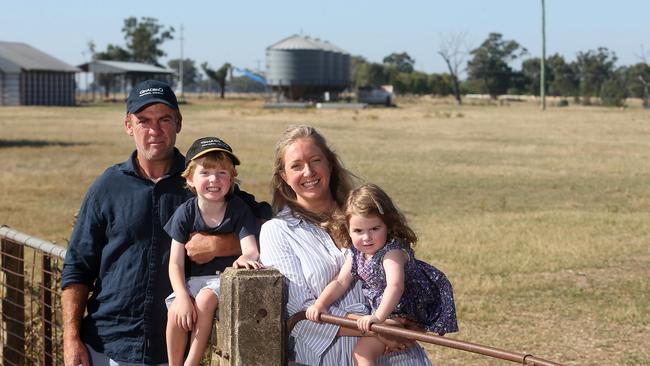
Containment areas and feedlotting are now included to help finish stock as well as easing grazing pressure.
But effort equals reward, with two years of $220-plus average returns for about 7000 wether lambs and up to $400 for 1-1/2-year old ewes.
Traditional lamb producers fall over themselves to secure the Gnadbro first-cross ewes, as well as their ewe lambs, which are offered each year now too.
The Bruckners have gradually grown their sheep enterprise which dovetails into their cropping program, bucking the trend for 100 per cent cropping.
“We just like the way sheep fit into our program with the cropping, and the returns, well, they are certainly there,” Heath says.
Ewe better believe it.
THOMPSON FAMILY
MOOJEPIN MERINOS
BADGEBUP, WA
The challenges thrown at Merino breeders have done nothing but light a fire of enthusiasm for one West Australian operation.
Moojepin Merinos, run by the Thompson family, has never been disheartened by issues such as calls to phase out mulesing or better mitigate climate change. Instead it tackles them head-on by providing genetic solutions to help clients shrink their carbon footprints, safeguard their sheep from flystrike and decrease lamb mortality rates.
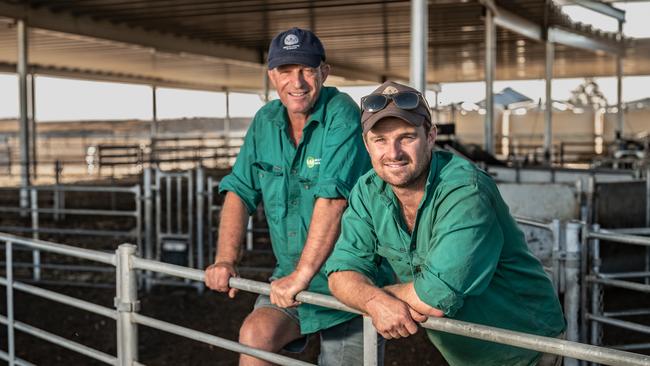
While they are catering for some highly complex breeding requirements, it’s ironic that Moojepin’s end result is an easy care and highly reproductive sheep.
The Badgebup-based stud in Western Australia’s Great Southern Region has a flock of 2300 stud Merino ewes and a 1400-ewe commercial flock run on 3000 hectares.
The move to non-mulesed sheep was only the start for principal David Thompson and now son Hamish.
While they are one of the most established sources of non-mulesed ram genetics in Australia, Moojepin has continued its quest to breed sheep with both high welfare and productivity traits.
Part of that is offering Australian Sheep Breeding Values for important measures of health, including worm egg count, dag score, breech wrinkle and cover, recorded since 2016.
What they – and their clients – have discovered is that maximising animal welfare reduces operational running costs.
“We are spending less on chemicals and labour, and in an industry where it is increasingly difficult to employ labour this is something that is of high focus for us here at Moojepin,” Hamish says.
Right now, they are embracing the challenge of increased lamb survival, or more correctly, weaning rate compared with the number of foetuses in breeding ewes.
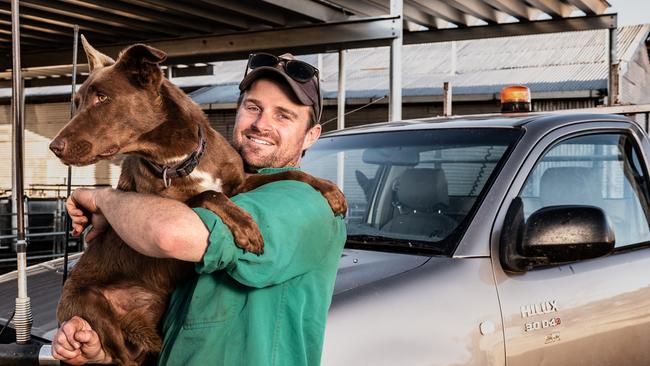
The family runs ewes in a containment area before lambing, so they can better manage the condition of breeders, with special rations for ewes carrying twins and single lambs. Once the ewes have been scanned, their feeding regimen is modified according to pregnancy status.
While joining ewe lambs is now popular industry-wide, Moojepin has been at the forefront of the movement, breeding sheep for fast early growth, high early muscle and genetic fat so wethers reach a saleable weight more quickly and ewe lambs are heavy enough to join.
O’CONNOR FAMILY
OXTON PARK
HARDEN, NSW
Farming is very much a numbers game for the O’Connor family of Oxton Park.
The innovative agriculture business, in the rolling hills between Harden and Young in southern NSW, is run by 14 permanent workers across 8000 hectares spread over 18 properties with 40,000 dual-purpose Merinos last year producing a whopping 22,279 lambs for a hefty lambing rate of 128 per cent.
Innovation, sustainability and profitability are the key drivers of Oxton Park’s success with family the very centrepiece of the operation.
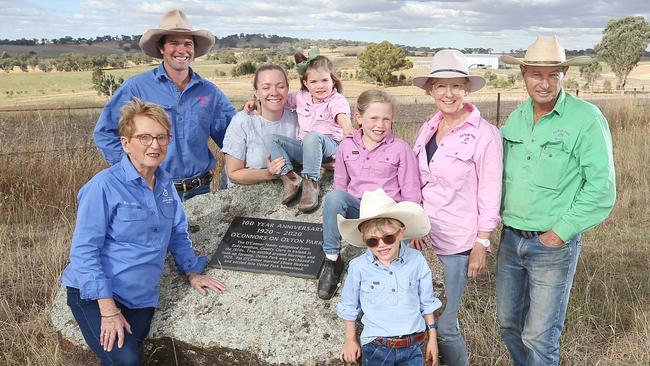
Matriarch, 86-year-old Monica O’Connor, is “still the rock that holds us all to account” according to her grandson, Jack, who works in the business with his father, John, uncles Peter and Paul, second cousin Pat and cousins Max, Luke and Jess and Jess’s husband Brad.
“Having a large family, it’s rare that we’ve been able to keep a business together as one farm and everyone is still close,” Jack says. “I’m not saying there weren’t hard conversations. But there’s lots of respect.”
Oxton Park runs plain-bodied, dual-purpose sheep for both wool and lamb production with a strong focus on quality genetics, including from the Bundilla Merino stud at Young, to produce desired outcomes. About 30 per cent of the flock is joined to Poll Dorset rams for prime lamb production.
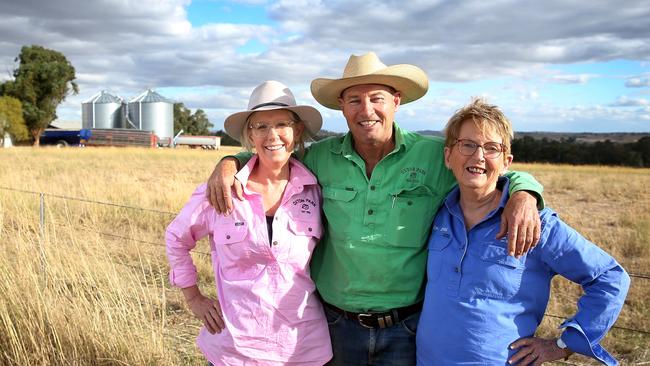
The O’Connors are fastidious when it comes to animal welfare. They ceased the controversial practice of mulesing — where wool is surgically removed from a sheep’s breech — more than a decade ago, which has led to market premiums.
Electronic identification was introduced five years ago, which has resulted in significant management gains.
“We’ve seen the power in the information once it’s collected and how it can be used,” Jack says.
Environmentally aware, the O’Connors have prioritised pasture improvement over the past decade and plant about 1000 trees a year.
Looking forward, Oxton Park is working towards becoming carbon neutral through investments in carbon measurement, and agrivoltaics.
Adding a splash of green to the black ink on their bottom line.



